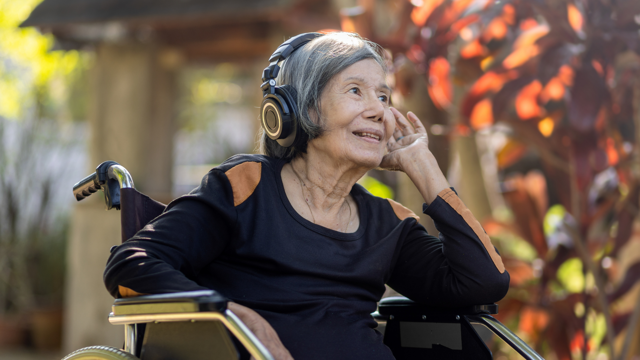
The majority of us will be affected by dementia in our lifetime. Research suggests as many as 91%. Whether we end up caring for a parent, supporting a friend or being diagnosed ourselves, we desperately need programmes and solutions that support wellbeing and quality of life, to help reduce the impact of dementia.
Social prescribing is a flexible, grassroots solution that can help to meet the needs of people living with dementia and those who care for them by connecting them to local support. Without a medical cure for dementia, it is imperative that we focus on supporting people to ‘live well’ following a diagnosis.
Social prescribing and dementia
Access to social prescribing can begin with a conversation in primary care or through a community organisation. When a person living with dementia is referred to a link worker, this provides an opportunity for holistic, person-centred care. The link worker is able to get to know the person living with dementia, learning about their worries, their passions and the complexities of their health and wellbeing. Once the link worker has that information, they can identify the sorts of social prescribing groups and programmes that might be of interest. For some that may be a walking group and for others that could be an art class.
For many people living with dementia, music can be incredibly powerful. That could be a personalised playlist of songs, a community choir, a drumming session, or a dance group that combines music and physical activity. There is so much potential for wide reaching projects on every scale, in every care setting and at every stage throughout the care journey. Whether it is just after diagnosis or towards the end of life, music can create a common language for communication, build connection and meaning, and help to strengthen relationships.
Music as therapy
In a recent review, academics found that music therapy is the best type of therapy for reducing the behavioural and psychological symptoms of dementia. In another, research found that music can improve quality of life, reduce agitation and decrease the need for medication in 67% of people living with dementia.
This can benefit not only people living with dementia, but also our health service. In 2017/18, the NHS spent more on prescription medicines than ever before – £18.2 billion, 40 per cent more than was spent in 2010/11.
With its ability to improve the lives of millions of people, alleviate symptoms of dementia and potentially save the NHS money, grassroots music projects for people with dementia urgently need investment.
More investment needed
The Power of Music report, published by UK Music and Music for Dementia earlier this month, set out a blueprint calling on government, health, care, music, philanthropy and third sectors to do just that. In response, we at NASP – in partnership with The Utley Foundation – have announced plans for a new funding programme with money to be made available for projects that provide musical activities for people living with dementia.
As the UK-wide champions of social prescribing, NASP is proud to be leading this project. We are seeking to secure up to £10 million in funding ahead of the programme’s official launch, later in 2022.
With this investment, we want to increase the provision of music therapy and music activities, gather evidence of their impact, and use that information to bolster funding for social prescribing projects that make a real difference across the UK.
Social prescribing takes many forms, and musical activities for people living with dementia is just one of them. At NASP we are continuing to make the case for social prescribing as a form of preventative and life enhancing healthcare for all those who need it. If any philanthropists, businesses or charitable bodies are interested in contributing to the fund, please do not hesitate to get in touch by emailing [email protected].


